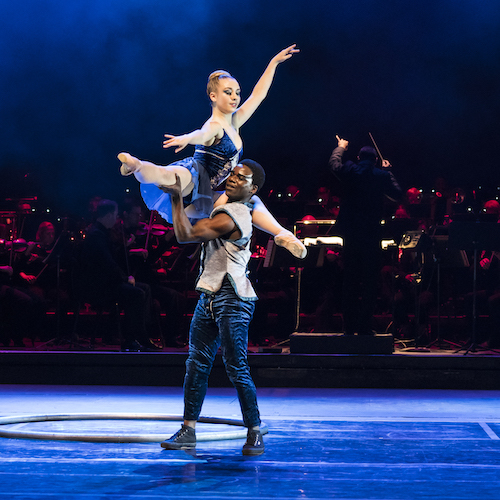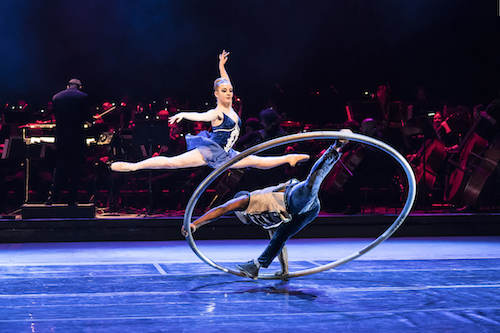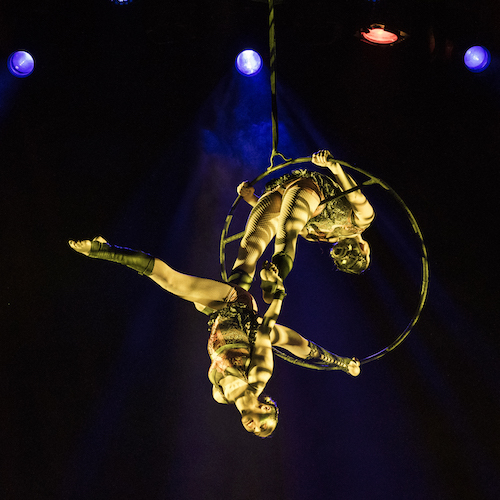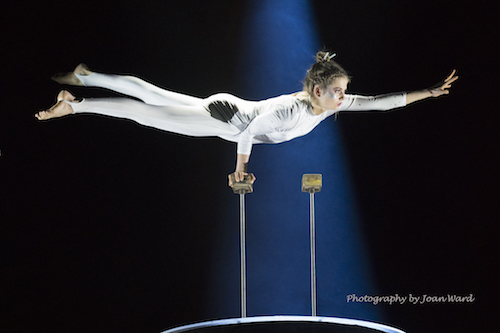 For a kid living on the street, trapeze lessons and trampoling don’t rate highly on the hierarchy of needs.
For a kid living on the street, trapeze lessons and trampoling don’t rate highly on the hierarchy of needs.
But circus skills that come wrapped up with important lessons for life are helping disadvantaged kids to fly above their circumstances both literally and figurately at the Zip Zap Social Circus.
Jacobus Claassen is now a coach at this Cape Town circus school, but he was a homeless kid when he first got involved. He’d been living on the streets in Paarl before migrating to Cape Town, where the homeless shelter he found encouraged its residents to attend various outreach programme.
“Zip Zap’s Second Chance outreach programme was one of them and I’d always wanted to be in a circus,” he says. “I was still at school so I should have only gone once a week, but I sneaked in three times a week,” he remembers.
He went on to complete Zip Zap’s professional four-year course called Dare To Dream, then joined the staff. Now at 27 he’s performed in Paris, Switzerland, Spain and in the US three times, once in front of Barack Obama at the White House.
He recently appeared in Journey Beyond - Symphonic Circus in Johannesburg, when 10 Zip Zap students and teachers performed to music from Johannesburg Youth Orchestra and singers Zolani Mahola, Zita Pretorius and Tim Moloi, combining circus acts with soaring classical music to create visual and aural magic.
 Zip Zap isn’t just a professional circus school, however. Most of its students, like Claassen, are street kids or youngsters from poor backgrounds who are trained through its various community outreach programmes.
Zip Zap isn’t just a professional circus school, however. Most of its students, like Claassen, are street kids or youngsters from poor backgrounds who are trained through its various community outreach programmes.
It was founded by Brent van Rensburg and his French wife, Laurence Estève, after they spent years performing in circuses overseas. “We decided to see if we could create a project to bring kids together from different backgrounds and cultures using the circus as a medium to bridge the divides in South Africa,” says Van Rensburg. “It was very ideological and 27 years later that’s what we’re still doing.”
About 2,000 kids a year take part in its outreach programmes. One runs in Khayelitsha in partnership with Doctors Without Borders, where kids attending clinics to receive anti-retroviral drugs learn circus tricks while they wait. “Our job is to give them some fun and a good meal. We were the first circus school in the world - and probably still the only one - which has a programme for children living with HIV,” says Van Rensburg.
The circus lessons are such an attraction that kids actually want to attend the clinic, creating the knock-on effect of more youngsters getting treated and taking their medication regularly.
All the circus lessons are free, whether they’re learning to juggle in the clinic or full time students taking its professional Dare To Dream course. “One of our philosophies is that all kids are equal when they walk in the door, so nobody pays,” Van Rensburg says. “If the kids are willing to work hard that’s payment enough. We don’t turn any away. We always make a plan, so if a kid really wants to be here we’ll find a way. It’s a continuous struggle to make ends meet but somehow it works.”
 Money raised by live performances covers about 40% of the costs, with donations and grants covering the rest. The expenses include two buses that weave around the townships to collect and drop off the kids who attend its classes. It also feeds the students every day, with Woolworths sponsoring the food.
Money raised by live performances covers about 40% of the costs, with donations and grants covering the rest. The expenses include two buses that weave around the townships to collect and drop off the kids who attend its classes. It also feeds the students every day, with Woolworths sponsoring the food.
Being a social circus means getting involved in the community and teaching the kids ‘life skills’ too, says performer and coach Jason Barnard. “It’s about teaching them respect and trust and how to be strong and confident. It’s not just about who can do the best back flip. It’s about how polite they are and how well they communicate.”
Christine Chapman, a creative director for the Journey Beyond show, says the kids don’t even realise they’re learning to become friendlier, more trusting and more trustworthy themselves along the way. “It’s about showing them they are better than they think they are so they become better people. Instead of stealing an apple they’re going to go out and juggle so they can earn the money to buy one.”
While its outreach programmes run in poor areas around Cape Town, its youth training programmes and professional courses draw students from anywhere. Since some of the outreach youngsters stay on to train professionally, the full-time courses meld together youngsters from all backgrounds. “Constantia millionaire kids get to play with kids from Khayelitsha who have absolutely nothing and they learn to look past those material things,” says Barnard.
 The training isn’t only for would-be performers, or ‘stars in the sawdust ring’, as Van Rensburg calls them, as they also learn backroom skills like lighting, rigging and sound engineering. Many have gone on to work as performers or technicians with Cirque du Soleil, and many others work for the thousands of less famous but just as exciting circuses around the world.
The training isn’t only for would-be performers, or ‘stars in the sawdust ring’, as Van Rensburg calls them, as they also learn backroom skills like lighting, rigging and sound engineering. Many have gone on to work as performers or technicians with Cirque du Soleil, and many others work for the thousands of less famous but just as exciting circuses around the world.
Several have come back later to teach at the school that first taught them, including Chapman. She was one of the first 15 students, when the equipment was a solitary trapeze bar swinging from a tree in the back garden. Eight years later Chapman and two colleagues embarked on professional circus careers abroad. She’s still fit enough to perform with her students occasionally, but the bones of a circus performer have a limited lifespan, she says.
Claassen and Barnard are likely to tour overseas next year, but right now Claassen loves showing kids who feel as hopeless as he once did that there is a future. “Some of the kids are going through what I went through, so I can put it into their heads that life doesn’t end there. If you really want a thing you can make your own choices and go for it, and through my teaching I can tell them that,” he says. “Look at me - I’ve been through worse and I’m standing here smiling.”
For more information about Zip Zap see here: